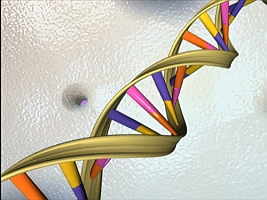Dana-Farber Cancer Institute and Brigham and Women’s Hospital — both in Boston — have launched a new research project to scan tumor tissue from adult cancer patients for hundreds of gene mutations linked to cancer. The program, called Profile, aims to speed the development of cancer treatments that target the genetic weaknesses in each patient’s tumor.
Profile is open to every adult cancer patient seen in the Brigham and Women’s and Dana-Farber Longwood Medical Area clinics. It is expected to build a comprehensive database for research into the genetic makeup of different cancer types and progress into treatments considered effective against individual tumors. The institutes plan to extend Profile to pediatric cancer patients at Dana-Farber and Children’s Hospital Boston in the coming year.
Tumors that may look identical or act alike can carry different sets of genetic mutations, which influence how cancers grow, spread, and respond to treatment. Profile’s researchers believe that data collected on a mass scale can capture the diversity of cancer at the genetic level. By identifying a tumor’s molecular characteristics, clinicians can select the appropriate treatment for the each patient.
A patient whose tumor carries a particular mutation would receive a drug known to be effective against that mutation in specific types of tissue. Although this procedures is followed in some cancer cases, the Dana-Farber/Brigham and Women’s project aims to find ways to apply the approach to many more patients.
A system called OncoMap will conduct the actual tissue-testing. OncoMap was designed for genomic research in cancer by investigators at Dana-Farber and the Broad Institute of MIT and Harvard. The system uses high-speed, high-capacity robotic machinery to prepare, sort, and scan tumor tissue, which the system’s developers say makes it possible to process large numbers of tumor tissue samples with a high degree of accuracy in a relatively short period of time.
Profile tests tumor samples for nearly 500 cancer mutations in 41 genes, as opposed to most testing today done on a few particular gene mutations. The program’s managers anticipate that more than 10,000 people will participate in the program during the first year and every year thereafter. While Profile was developed primarily for research purposes, the program’s managers expect some participants may immediately benefit by learning of their eligibility for current clinical trials.
Read more:
- Online Cancer Genomics Tool for Clinicians Unveiled
- Whole Genome Sequencing Advances for Cancer Diagnosis
* * *


 RSS - Posts
RSS - Posts
[…] Read more: Dana-Farber, Brigham and Women’s Establish Genomic Database […]
[…] Read more: Dana-Farber, Brigham and Women’s Establish Genomic Database […]